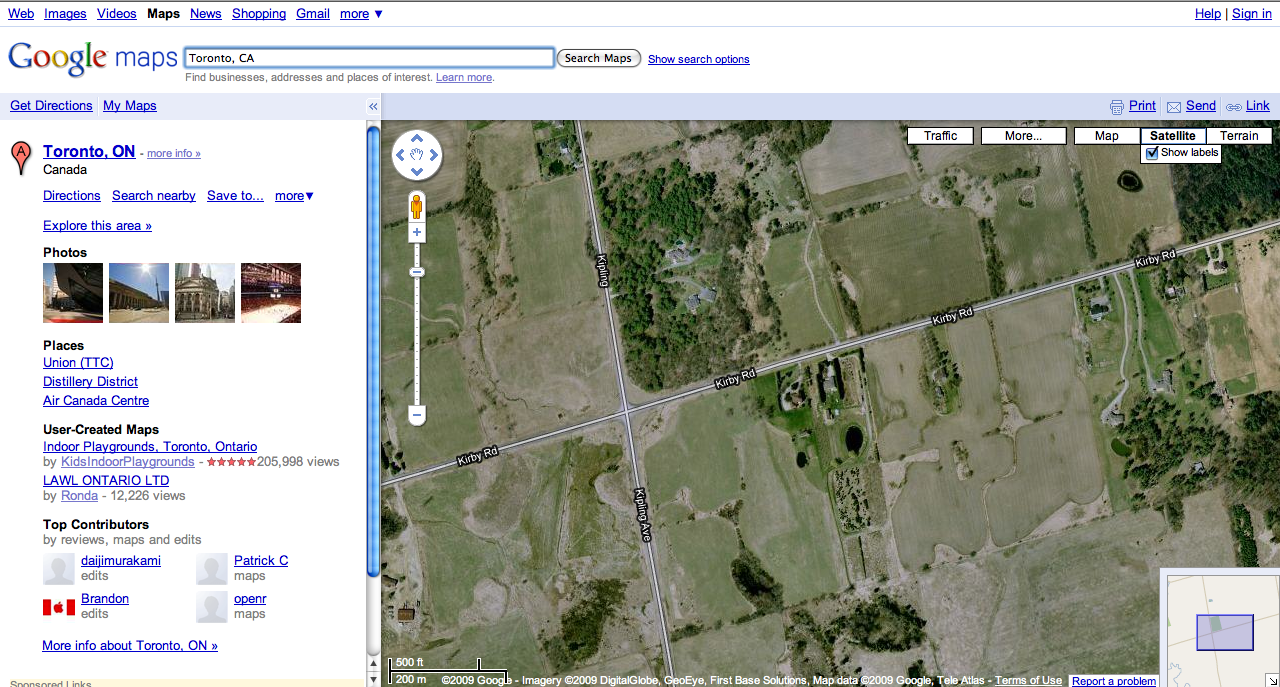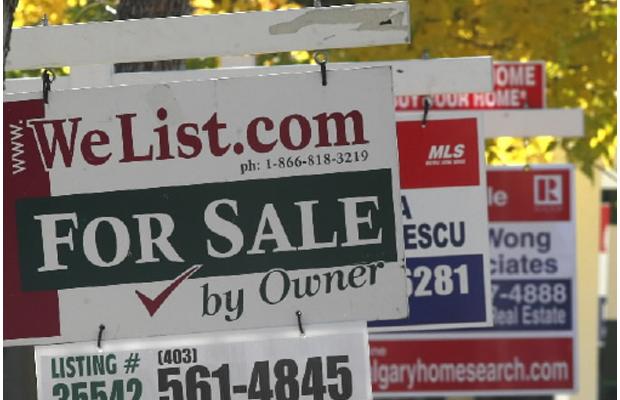Google Street View Now in Canada

Google Street View was recently launched for 11 cities in Canada. The Canadian government has been very public about their apprehensions with this new technology. They have expressed their concern for the privacy of citizens and their homes.
Google has blurred all faces and license plates in order to ensure the privacy of any individual who may have been included in a photo. Google has explained the views are all taken from public streets, and do not violate anyone’s privacy. Google has included links for reporting any concerns a person may have. Any concerns that are reported will be reviewed. If they are found to violate a persons privacy, they will be removed.
The Street View technology is available on iPhones. Simply enter in an address, and you will get a clear view of the building or landmark you are looking for. Street View uses images that are patched together from several different angles. The Street View, gives a user a 360 degree view of a particular street address. This application was first launched in the United States in 2007. It is currently available in 10 countries.
A few local residents are a little embarrassed about the pictures that were taken during the garbage workers strike. Several of the local parks were filled with garbage and those are the pictures that appear in the Street View. Mayors of these particular cities are hoping to increase tourism with this latest technology.
The Canadian cities that are included in the Street View thus far are as follows; Halifax, Toronto, Quebec City, Calgary, Montreal, Squamish, Whistler, Waterloo, and Ottawa Kitchener.
Take our FREE Online Assessment Today!
http://www.akcanada.com/facebookassessment.cfm
Socialize with Abrams & Krochak
AKCanada – http://www.akcanada.com
Facebook – http://www.facebook.comAKCanada
YouTube – http://www.youtube.com/abramskrochak
Twitter- http://www.twitter.com/abramskrochak
Linens 'N Things Resurrected (In Canada)
In today’s marketplace, going out of business doesn’t mean you go away forever. Your storefronts may disappear, but you’ll just pop up again online—like CompUSA and Circuit City—or you’ll come back on someone else’s shelves as a brand, like Linens ‘N Things.
The company announced in a press release last week that it’s signed a 6 year deal with Home Outfitters, a home goods retailer in Canada:
…under [the agreement] a special line of Linens ‘N Things branded home goods will be produced and exclusively sold at Home Outfitters in Canada. The agreement, which includes a broad range of bed and bath, home decor as well as seasonal products, extends through 2016.
Take our FREE Online Assessment Today!
http://www.akcanada.com/facebookassessment.cfm
Socialize with Abrams & Krochak
AKCanada – http://www.akcanada.com
Facebook – http://www.facebook.comAKCanada
YouTube – http://www.youtube.com/abramskrochak
Twitter- http://www.twitter.com/abramskrochak
Mazda to bring new subcompact to Canada
 In an interview with Mazda Motor Corporation president and CEO Takashi Yamanouchi, the Globe and Mail quotes the Mazda boss confirming that the subcompact Mazda2 (Demio in other markets) will be sold in Canada.
In an interview with Mazda Motor Corporation president and CEO Takashi Yamanouchi, the Globe and Mail quotes the Mazda boss confirming that the subcompact Mazda2 (Demio in other markets) will be sold in Canada.
“I’ve just decided,” Yamanouchi told the Globe and Mail.
While it would appear to the average consumer like a simple decision, with no subcompact model yet offered on the Canadian market, it appears that the brand’s executive team has wrestled with the decision for some time.
“There has been a lot of discussion about that,” added Yamanouchi. “There is concern it would cannibalize Mazda3 sales. We need it to be incremental.”
Dealer pressure to offer variety to its buyers eventually won out, critical in a market that sees 50-percent of all passenger car sales comprised of subcompact and compact models.
No body-style has been spoken of, although a hatchback is expected. Such a move would also help differentiate the model from Ford’s Fiesta, which is built on the Mazda2 architecture. Ford may offer a hatchback too, but for the time being has only announced a four-door sedan variant.
Why Canada and not the US? First, Mazda’s share of the Canadian market equals about 5-percent, whereas the brand doesn’t even convert 2-percent of American buyers to the zoom-zoom way of life. Part of the automaker’s success is a general penchant for smaller more economical vehicles in Canada, something Mazda does very well. The need for entry-level models is critically important in Canada, so much so that automakers have gone to great lengths in order to satisfy the unique Canadian demand.
Acura has long made a rebranded Honda Civic now dubbed CSX, while Volkswagen reincarnated the previous generation Golf and Jetta models with City monikers and dropped their prices significantly in order to get in on the action. Toyota brought its Yaris to Canada first, dubbing it Echo Hatchback before the current Yaris became available on both sides of the 49th parallel, while Pontiac’s G3/Wave and the Suzuki Sprint+ variant have been part of Canada’s small car staple for years. Even smart’s fortwo first made it in Canada before taking on the US. So why haven’t other automakers caught on?
Oftentimes there are good reasons for car companies to abstain from a booming market segment despite what looks like an obvious error in judgment, and the reasons often include safety and/or emissions regulations not being met. Such issues have kept Ford’s Ka and Fiesta from entering North American markets, as well as Mitsubishi’s Colt subcompact, just to name a few. When it came time for Mazda to redesign its popular Mazda2 hatchback, the Canadian division made sure its needs were considered so that the brand could gain a footing in one of the fastest growing automotive segments in the country.
Take our FREE Online Assessment Today!
http://www.akcanada.com/facebookassessment.cfm
Socialize with Abrams & Krochak
AKCanada – http://www.akcanada.com
Facebook – http://www.facebook.comAKCanada
YouTube – http://www.youtube.com/abramskrochak
Twitter- http://www.twitter.com/abramskrochak
Calgary CMA’s new home price decline fifth highest in Canada

The Calgary census metropolitan area registered the fifth highest 12-month decline in new house prices in August, according to Statistics Canada.
The federal agency’s New Housing Price Index, released today, indicates contractors’ selling prices dropped by 6.3 per cent in Calgary from August 2008 to August 2009.
The biggest decline was in Edmonton at 11.4 per cent followed by Victoria (10.0 per cent), Vancouver, (7.8 per cent) and Saskatoon (7.6 per cent).
Nationally prices fell by 3.1 per cent in those 12 months.
On a monthly basis, prices rose by 0.2 per cent in Calgary from July while in Canada they rose by 0.1 per cent.
Statistics Canada said the largest year-over-year declines remained in Western Canada “where prices decreased from highs registered in late 2007 and the beginning of 2008.”
“Over the past few months, some builders in Alberta and British Columbia have offered lower prices, bonuses and incentives to motivate sales in the face of weaker market conditions,” added the federal agency.
Among the surveyed cities, the biggest year-over-year gain was experienced in St. John’s at 7.5 per cent followed by Quebec City at 6.3 per cent.
Socialize with Abrams & Krochak
AKCanada – http://www.akcanada.com
Facebook – http://www.facebook.comAKCanada
YouTube – http://www.youtube.com/abramskrochak
Twitter- http://www.twitter.com/abramskrochak
Archives
- June 2025
- March 2025
- February 2025
- December 2024
- October 2024
- June 2024
- May 2024
- April 2024
- January 2024
- November 2023
- July 2023
- June 2023
- May 2023
- January 2023
- November 2022
- April 2022
- March 2022
- February 2022
- October 2021
- June 2021
- April 2021
- October 2020
- September 2020
- June 2020
- May 2020
- April 2020
- March 2020
- December 2019
- January 2019
- December 2018
- November 2018
- August 2018
- June 2018
- April 2018
- January 2018
- December 2017
- November 2017
- April 2017
- January 2017
- December 2016
- November 2016
- October 2016
- September 2016
- August 2016
- August 2015
- January 2015
- December 2014
- November 2014
- June 2014
- April 2014
- March 2014
- February 2014
- December 2013
- May 2013
- April 2013
- January 2013
- December 2012
- August 2012
- June 2012
- March 2012
- January 2012
- September 2011
- August 2011
- July 2011
- June 2011
- February 2011
- January 2011
- December 2010
- November 2010
- September 2010
- August 2010
- July 2010
- June 2010
- May 2010
- April 2010
- March 2010
- February 2010
- January 2010
- December 2009
- November 2009
- October 2009
- September 2009
- August 2009
- August 2008
- July 2008
- June 2008
- May 2008
- April 2008
- March 2008
- February 2008
- January 2008

